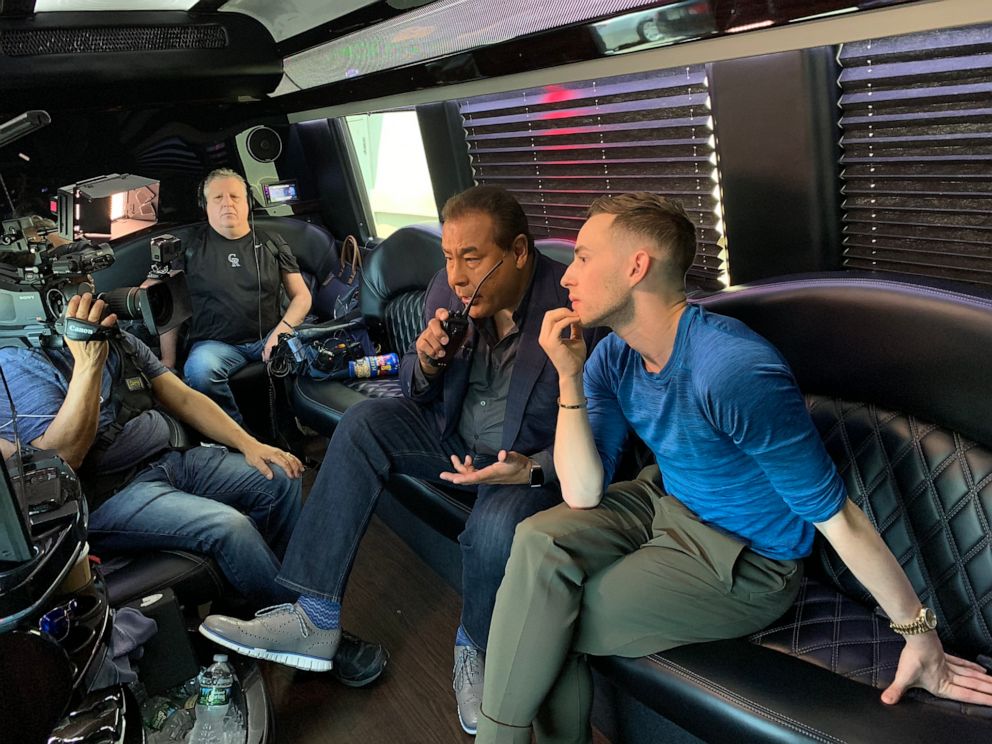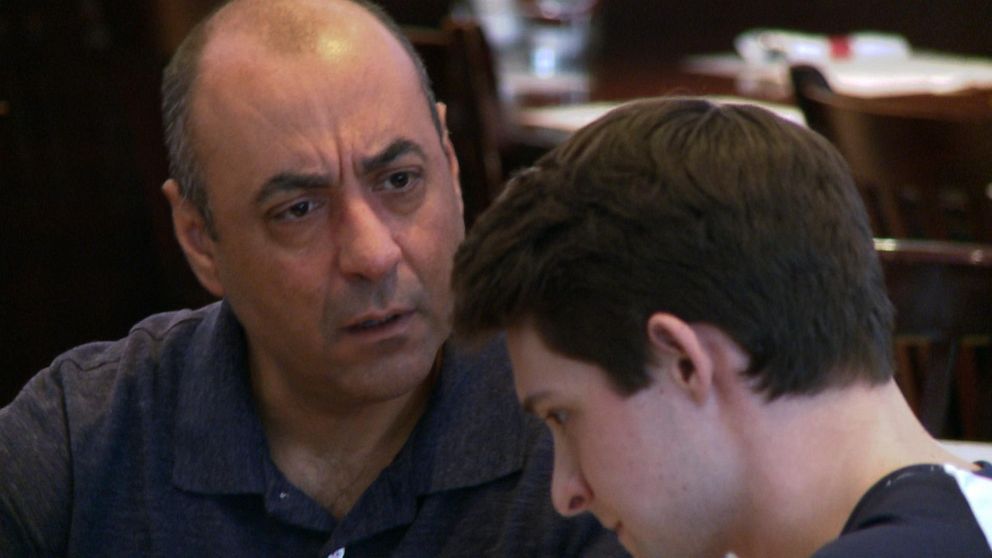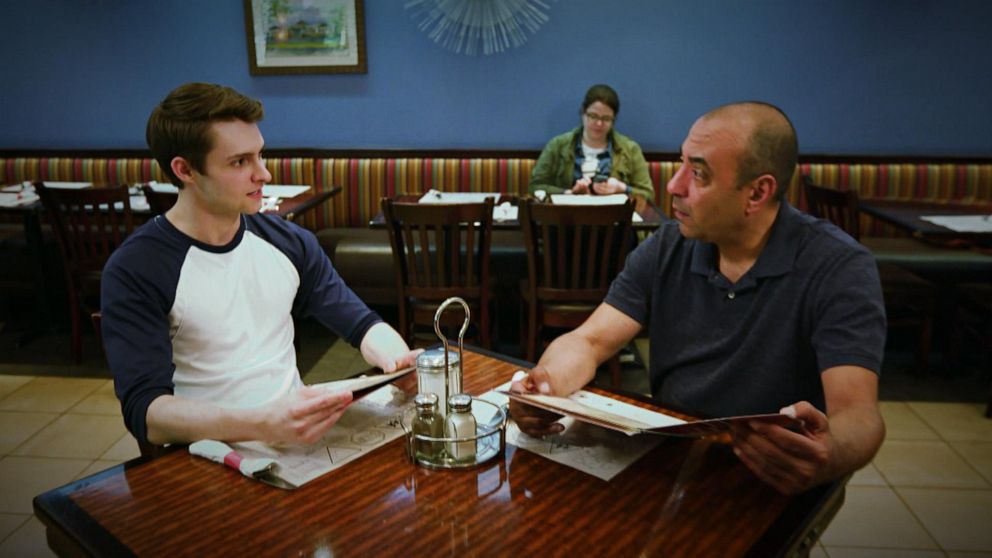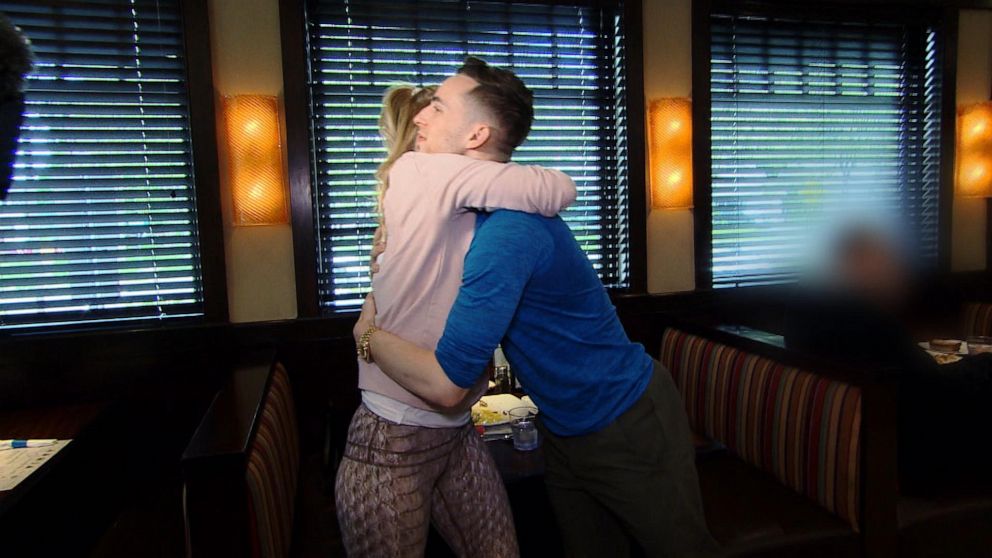Olympic star Adam Rippon joins 'What Would You Do?' scenario about coming out
The Olympic figure skater participated in a powerful episode
As a young figure skater, Adam Rippon thought he’d have to keep the secret of his sexuality secluded forever.
After lacing up his first pair of skates at age 10, years of practicing difficult moves like the triple Lutz helped him to chip away the anxiety of being accepted for who he was.
Now 20 years later, with his identity known to the world, Rippon said he’s using his success as an Olympian and openly gay athlete to serve as an example for other kids coming to terms with their own identity.
“I owe it to that young kid to say something,” Rippon said to John Quiñones in a new interview for “What Would You Do?”
“If I had a role model or if there was a person saying the things that I was saying when I was younger, I could have saved myself a lot of grief,” he said.

Like many other youth athletes have experienced, Rippon said he discussed with family and friends whether he should go public with his sexuality for fear that he wouldn’t find success in his career.
“Nobody really had a clear answer of what the right thing to do would be. But for me, it felt like I needed to do it,” Rippon said.
Until recently, LGBTQ individuals in more than half the country could still be fired for being gay. The U.S. Supreme Court made a landmark decision in June, making it illegal to fire workers for their sexual orientation or gender identity.
Rippon described the reaction from friends and family as “overwhelmingly positive” when he came out as gay in 2015. In 2018, he made history as one of the first openly gay U.S. athletes to compete in the Winter Olympics.
“When I was at the Olympics, to be honest, I never got any negative feedback of being an out athlete,” he said. “If somebody wants to say something nasty about me, it was always about me being gay on Twitter and Instagram on social media.”
For Rippon, he said coming out was all for the better.
“I knew who I was,” Rippon said. “As an athlete, and I think no matter what your job is, when you know who you are, you’re more confident in that person.”
For the hidden camera segment that Rippon was asked to join, “What Would You Do?” actor Kyle Pollack nervously revealed he’s gay to his baseball coach, played by Danny Plaza.

In a scene from the show, Plaza quickly replied being openly gay is a “career-ender” for athletes. Pollack expressed he was worried about how the coach would take his news and how the team would take it. But Pollack said he’d rather grow up to play on the professional teams “as who I am, being who I am.”
The two acted the scene inside Tom Sawyer Diner in Paramus, New Jersey, while Rippon and Quiñones watched customers’ real-life reactions caught on hidden cameras. They listened in on what a woman at a nearby table said to Plaza after Pollack left to take a moment in the restroom.

“I saw it coming. He was having a hard time,” the woman said after seeing Pollack stumble with his confession. “He’s right in the bathroom right now freaking out because he wanted you to accept it more.”
A few minutes later, Pollack returned as Plaza left the table.
“Just give him time,” the woman told Pollack. “Things are different now in this world. He doesn’t realize it.”
Pollack confided in the woman, “[My coach] thinks I’m giving up my career.”
“He’s old school. He feels like no one’s done that yet,” the woman said, “But maybe you can be the first because he says you’re amazing.”
In the control room where he watched this exchange in real-time, Rippon started wiping away tears.
“She didn’t need to say anything and she wasn’t prompted to say anything,” he said. “She was just so kind to the both of them.”
Rippon later embraced the woman with a warm hug, after Quiñones asked why she felt compelled to speak up.

“It’s a tough situation,” the woman told Quiñones, “And there’s so much kid-suicide now that I got upset that I didn’t want him to feel rejected from his coach.”
More than 1.8 million LGBTQ+ youth seriously consider death by suicide each year, according to The Trevor Project.
Rippon’s own professional accomplishments might serve as an example to any coach thinking an athlete’s sexuality denies them opportunity.
Since his coming out, Rippon won gold at the 2016 U.S. Figure Skating Championships and won a bronze medal as part of the U.S. team during that history-making Winter Olympics in 2018. After retiring from skating in 2018, Rippon was named a “Dancing With the Stars” champion and penned a memoir “Beautiful on the Outside.”
“Getting to meet younger kids who’ve told me that they came out after they saw me skate at the Olympics is really touching,” Rippon said in his interview with Quiñones.
It’s the type of representation Rippon said he wished he saw in sports as a young boy from Scranton, Pennsylvania.
“When people can see a little bit of themselves in someone, it gives them the permission to be as authentic as they possibly can be,” he said.
That’s why Rippon said he’s stepped into the spotlight, giving his advice to any kids fearful about coming out.
“Being part of the LGBTQ plus community, it's just not a hindrance to anything,” he said. “You can still be successful. You can still go after your dreams. It doesn't have to affect that.”
If you are in crisis or know someone in crisis, call the National Suicide Prevention Lifeline at 1-800-273-TALK (8255) or contact the Crisis Text Line by texting HOME to 741741. You can reach Trans Lifeline at 877-565-8860 (U.S.) or 877-330-6366 (Canada) and The Trevor Project at 866-488-7386.



